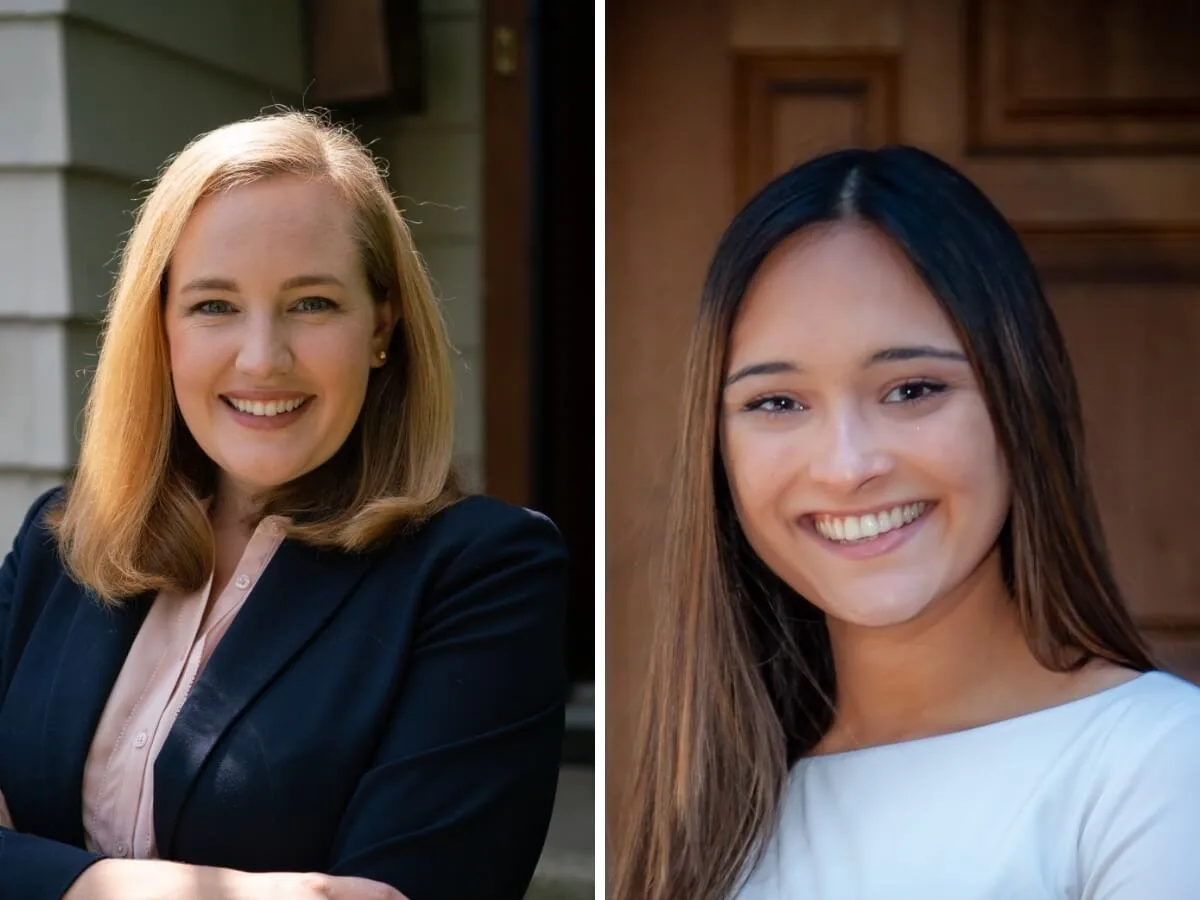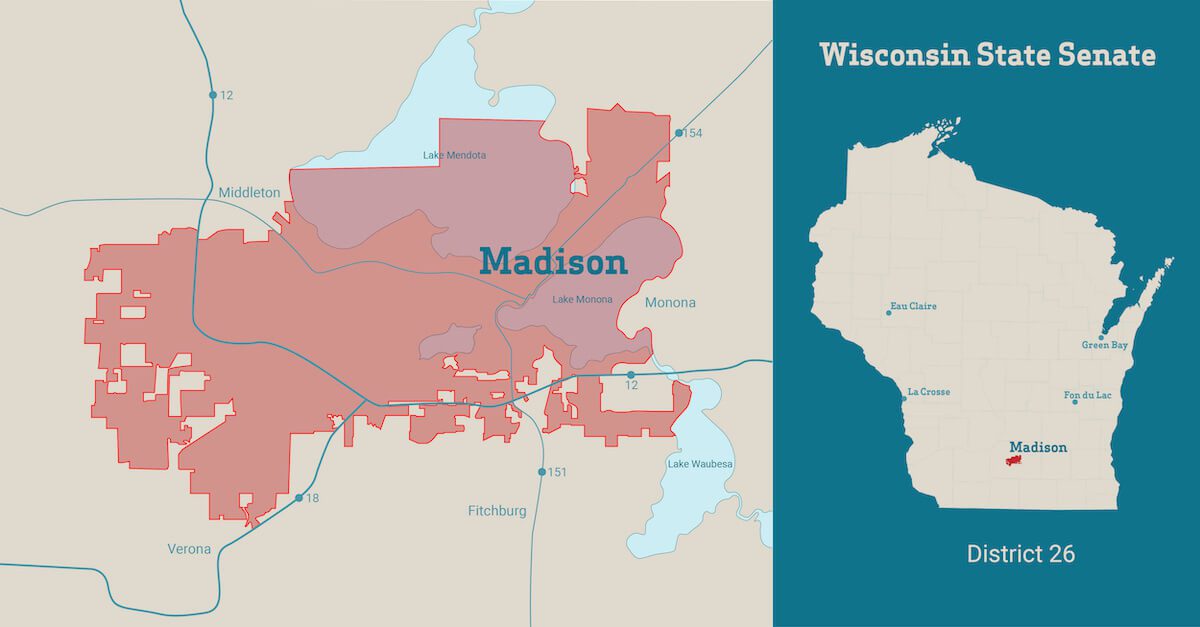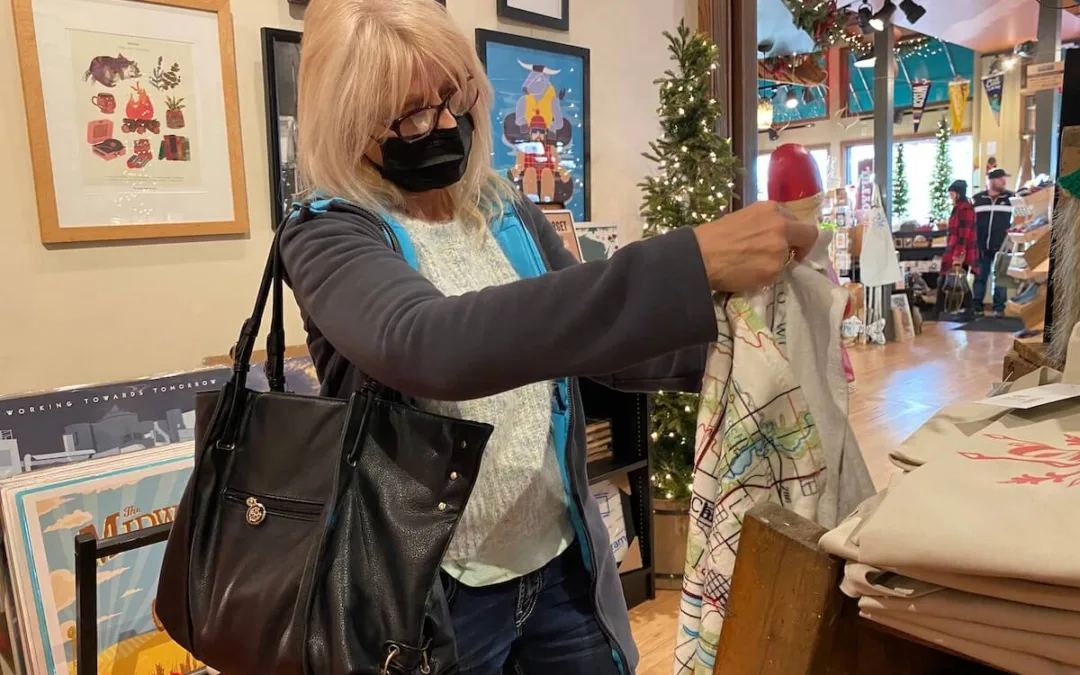
#image_title
#image_title
Seven Democrats are vying for long-time Sen. Fred Risser’s seat. Here is a look at two of the contenders.
Editor’s Note: After 64 years in office, Sen. Fred Risser announced in March that he would be retiring at the end of this term. Seven democrats are vying for his seat. They will square off in the Aug. 11 primary. With no Republican or Independent registering to run for the seat, the winner of the primary will be the district’s next senator.
The candidates are Brian Benford, Amani Latimer Burris, William Henry Davis III, John Imes, Nada Elmikashfi, Aisha Moe, and Kelda Roys. UpNorthNews sent each of the candidates five questions to answer. Answers from Moe and Roys are posted below. Answers from Elmikashfi and Imes can be found here, and answers from Benford and Davis can be found here. Read Burris’ comments here.
UNN: What is the top issue facing the people in your district?
Aisha Moe: Access to affordable, sustainable living for everyone is the top issue in our district. I stand for Medicare for All because every working-class household in this district is one medical emergency away from going bankrupting. The cost of healthcare is artificially inflated in our for-profit system. I also stand for racial equity. Madison is one of the best places to live if you’re a white person in a white family, but there are racial inequities in this city that must be addressed in multiple different areas: education, affordable housing, and a complete reworking of the criminal justice and policing systems of our state.
UNN: Describe what unique life experiences would make you both an empathetic and effective lawmaker.
Moe: As a young Muslim Woman of color and a recent UW Madsion, I understand the ideal of the younger generations and can bring that energy to the legislature. I have nothing that is holding me back from bringing a progressive conversation and saying exactly what needs to be said.
UNN: Gov. Tony Evers and Lt. Gov. Mandela Barnes introduced a nine-bill package on June 19 aimed at reforming police transparency and accountability in response to ongoing protests over the murder of George Floyd. Do you believe this package does too little… does too much to expect it to pass, or is just right? Why or why not?
Moe: We need to focus on community control over policing, which is why I think it’s important that the bill package includes a $1 million grant program to fund community organizations that work to mediate conflicts. I think that this package is a fantastic start and that the leaders in this state need to do everything in their power to enroll every representative into this package. It’s not enough to say, “oh well the Republican leadership stopped us.” People’s lives are at stake. If this does not pass, I want to see it introduced again and again and again until it does pass.
UNN: Funding for K-12 education is an ongoing issue in Wisconsin, now exacerbated by the need for virtual learning due to COVID-19. What do lawmakers need to pass to ensure that low income students in your district are not left behind?
Moe: I think we need to start by ending the voucher school system which has created a classist, and ultimately racist, system of public education in this state. We basically have two publicly funded systems in the state which just works to pull money away from schools that need funding to give to schools that are exclusionary. We need to make sure that there is a public pool of money to fund schools based on what is needed and not based on local property values.
UNN: Your district includes a portion of Dane County, which has the highest infant mortality rate for Black babies in the country. What could you do as a state senator to begin to address this problem?
Moe: This is an example of the disgusting racial disparities that exist in this city. We as a city can not sit back and continue to let this happen. Part of the reason I support Medicare for All, is because it makes healthcare available to everyone. It does not make affordable healthcare available to only those who have jobs or have the privileges that society has deemed make you worthy of a healthy life. It’s available for everyone.

UNN: What is the top issue facing the people in your district?
Kelda Roys: We face a triple challenge – a public health crisis and an economic crisis, and racial disparities that have been made worse by both. This pandemic exposed the ways our society has failed, exacerbating existing inequalities. Recovering will require skilled leadership and vision — we need big structural changes to build a fair economy that works for everyone. I have detailed plans to help workers and small businesses, ensure access to quality, affordable, comprehensive healthcare and paid leave, address climate change, and build racial equity and justice.
UNN: Describe what unique life experiences would make you both an empathetic and effective lawmaker.
Roys: My experience sets me apart: as a two-term state representative, legislative leader, and advocate, I’ve spent my career turning progressive values into real policy results. I’ve been extremely lucky, but I also know what it’s like to be without health insurance, how student debt affects life choices, how tightly we hug our kids after another school shooting. Every child deserves the opportunities I’ve had. As a legislator, I held dozens of listening sessions each year – even on the Metro bus – to hear and learn from my constituents.
As vice-chair of the Assembly Health Committee, I helped expand healthcare access to 80,000 Wisconsinites and fought against Act 10, Walker’s attack on workers. As executive director of a statewide organization, I helped build a coalition that successfully passed the first pro-choice law in a generation — through an anti-choice, Republican Assembly. In law school, I worked on the Innocence Project and successfully advocated for landmark reforms to our broken criminal justice system.
I’m also a small business owner and a mother. If elected, I’d be the youngest woman in the state senate. Only 7 of 33 senators are women – and not a single woman senator has young children. No wonder childcare, paid leave, and equal pay aren’t priorities. We need effective legislators who listen, collaborate, and get things done even in tough political climates — as I’ve done my whole career.
UNN: Gov. Tony Evers and Lt. Gov. Mandela Barnes introduced a nine-bill package on June 19 aimed at reforming police transparency and accountability in response to ongoing protests over the murder of George Floyd. Do you believe this package does too little… does too much to expect it to pass, or is just right? Why or why not?
Roys: I strongly support the Governor’s proposal, and have detailed plans of my own at keldaroys.com. To eliminate police brutality, systemic racism, and mass incarceration, we need community oversight, to demilitarize police, and decriminalize poverty and substance use disorder. Mental and behavioral health problems need healthcare, not law enforcement.
Ultimately, though, public safety isn’t about cops and jails — it’s created by investing in people and communities. For too long, many people of color and low income people have lived in neighborhoods with defunded schools, inadequate housing, few good employment opportunities, and even fewer services. Ensuring great schools, safe housing, living wages, healthcare, and transit would go a long way towards reducing racial disparities and creating public safety.
UNN: Funding for K-12 education is an ongoing issue in Wisconsin, now exacerbated by the need for virtual learning due to COVID-19. What do lawmakers need to pass to ensure that low income students in your district are not left behind?
Roys: Many students statewide lack internet access and computers. The state should provide funding to close our significant technology gap, from free reliable broadband provided for all students, to laptops/tablets/headphones, safe places to work, and food. Virtual learning is challenging — schools need additional staff to support students at home, especially students with disabilities who don’t have access to at-home services.
More broadly, we must reinvest in public education, from early childhood to K12 to our technical colleges and UW System. We must stop sending public dollars to private voucher schools, and make school funding equitable, so every child’s needs are met.
Finally, successful virtual learning takes huge parental involvement — many working parents can’t do this and, during the pandemic, lack support systems like family or childcare that might otherwise help.
UNN: Your district includes a portion of Dane County, which has the highest infant mortality rate for Black babies in the country. What could you do as a state senator to begin to address this problem?
Roys: As a mother, this issue is urgent. It’s why I crafted a proposal to reduce Wisconsin’s shameful racial disparities in infant mortality fifteen years ago, as executive director of NARAL Pro-Choice Wisconsin. We must:
- Expand Medicaid
- Offer free prenatal vitamins and effective contraception so women can safely space pregnancies
- Expand FoodShare benefits to include high-quality nutritious food
- Let women — not insurance companies — choose where to birth and a doula/birth attendant they select
- Raise dental reimbursement rates; periodontal disease is a key factor for preterm birth
- Provide 12 weeks of paid leave for all new parents and adequate paid leave for prenatal care
- Reduce mercury poisoning
- Expand postpartum visiting nurses
We must dismantle racial bias in healthcare and racism in society. Black women are less likely to have concerns taken seriously and more likely to die during childbirth. Even Black women with financial resources experience the toxic stress of racism, which harms them and their pregnancies.
Politics

Biden administration bans noncompete clauses for workers
The Federal Trade Commission (FTC) voted on Tuesday to ban noncompete agreements—those pesky clauses that employers often force their workers to...

Opinion: Trump, GOP fail January 6 truth test
In this op-ed, Milwaukee resident Terry Hansen reflects on the events that took place on January 6, the response from Trump and other GOP members,...
Local News

Readers Poll: Top Bowling Alleys in Wisconsin
Looking for the best bowling in Wisconsin? Look no further! Our readers have spoken in our recent poll, and we have the inside scoop on the top...

8 Wisconsin restaurants Top Chef judges are raving about
Top Chef’s 21st season is all about Wisconsin, and on-screen, it’s already apparent that the judges feel right at home here. But, while filming in...


